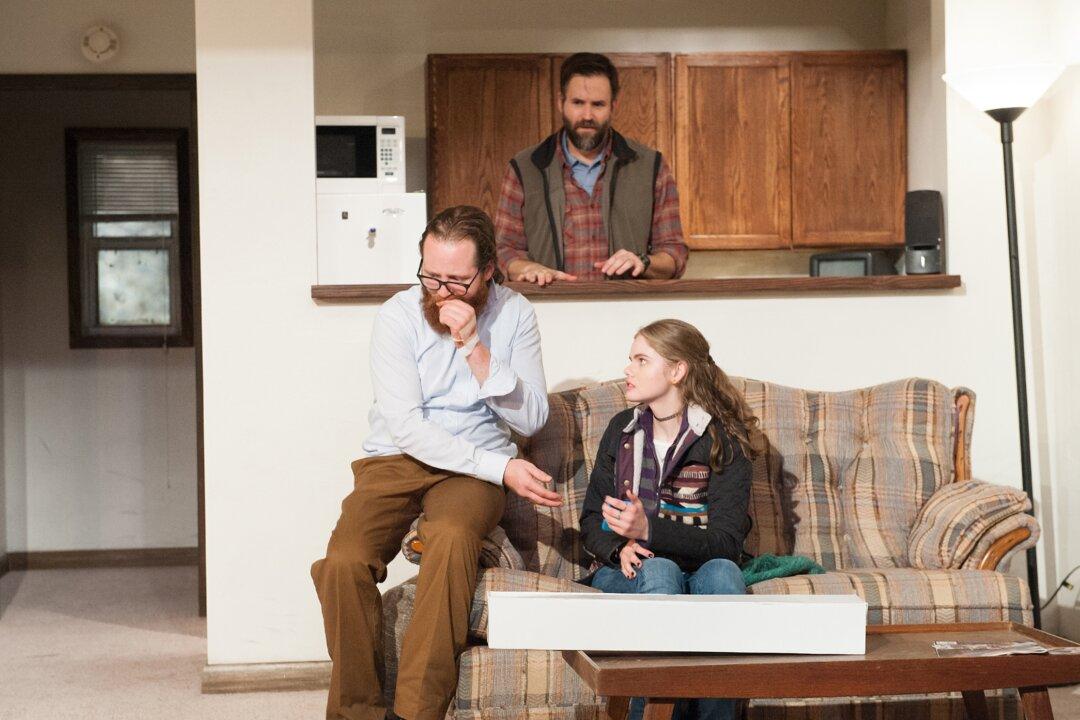NEW YORK—How can you move on from the sins and stigma of the past when you’re still trapped by their effects? It’s a question Adam Rapp brilliantly answers in his all-too-human drama “The Purple Lights of Joppa Illinois,” now at the Atlantic Theater Stage 2.
Ellis (William Apps), in his early 40s, is someone most people would basically ignore. He works at night buffing floors and appears somewhat slovenly dressed. He has an air of discomfort about him.
Yet today he is tucking in his shirt, making sure he’s wearing deodorant, and playing hip-hop music, which he obviously never listens to, much less understands. He is preparing to welcome two teenage girls into his apartment.
Monique (Susan Hayward) puts Ellis off rather quickly with her overbearing manner and habit of using foul language. Catherine (Katherine Reis), the younger and quieter of the pair, is content to observe things and people, particularly Ellis, before saying or doing much.
Revealing why the girls are present would tell too much of the plot, but suffice it to say there is a deep connection between one of them and Ellis. The other young lady is there for moral support, and is ready in case Ellis is unable to maintain his already precarious equilibrium.






